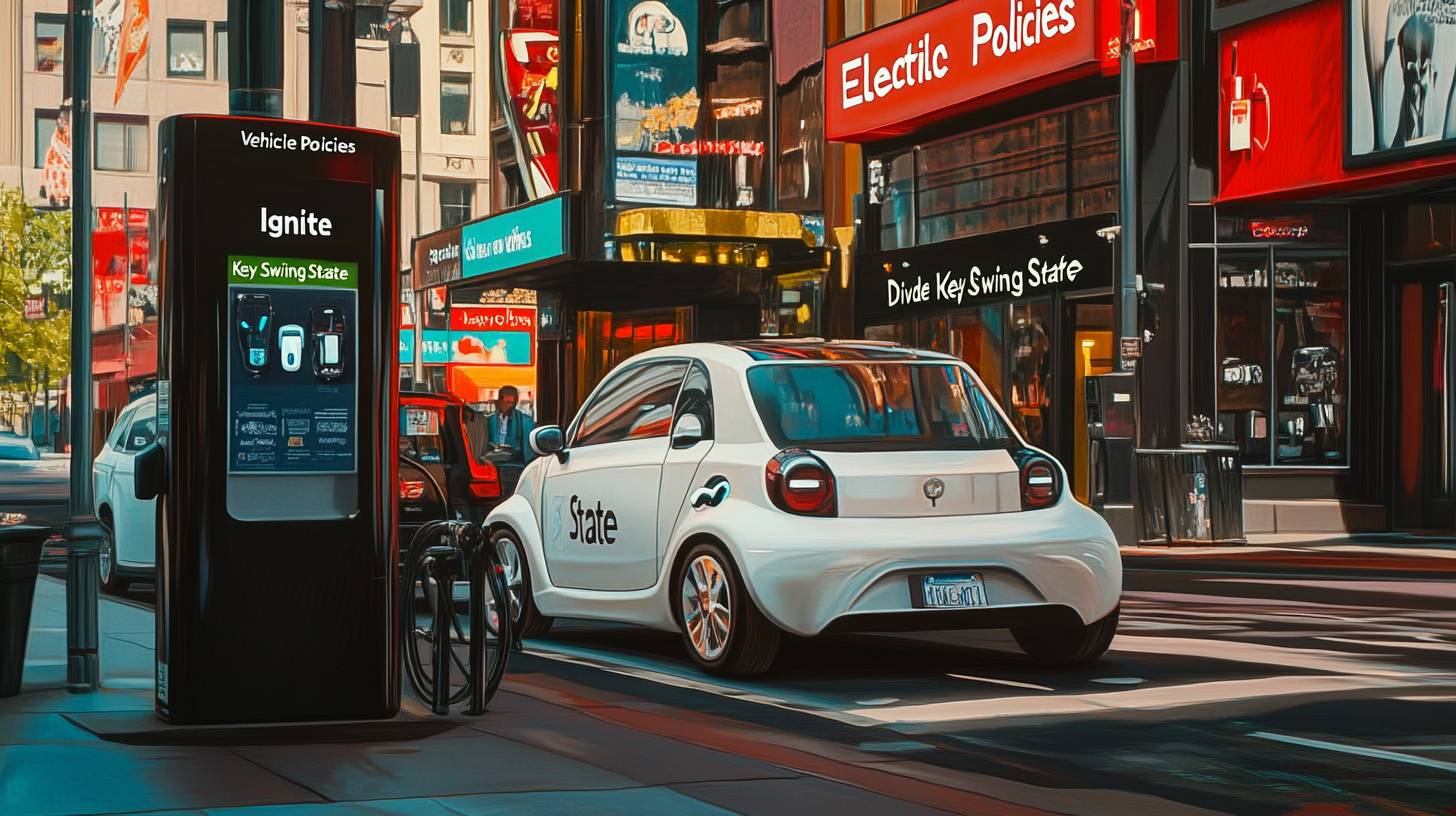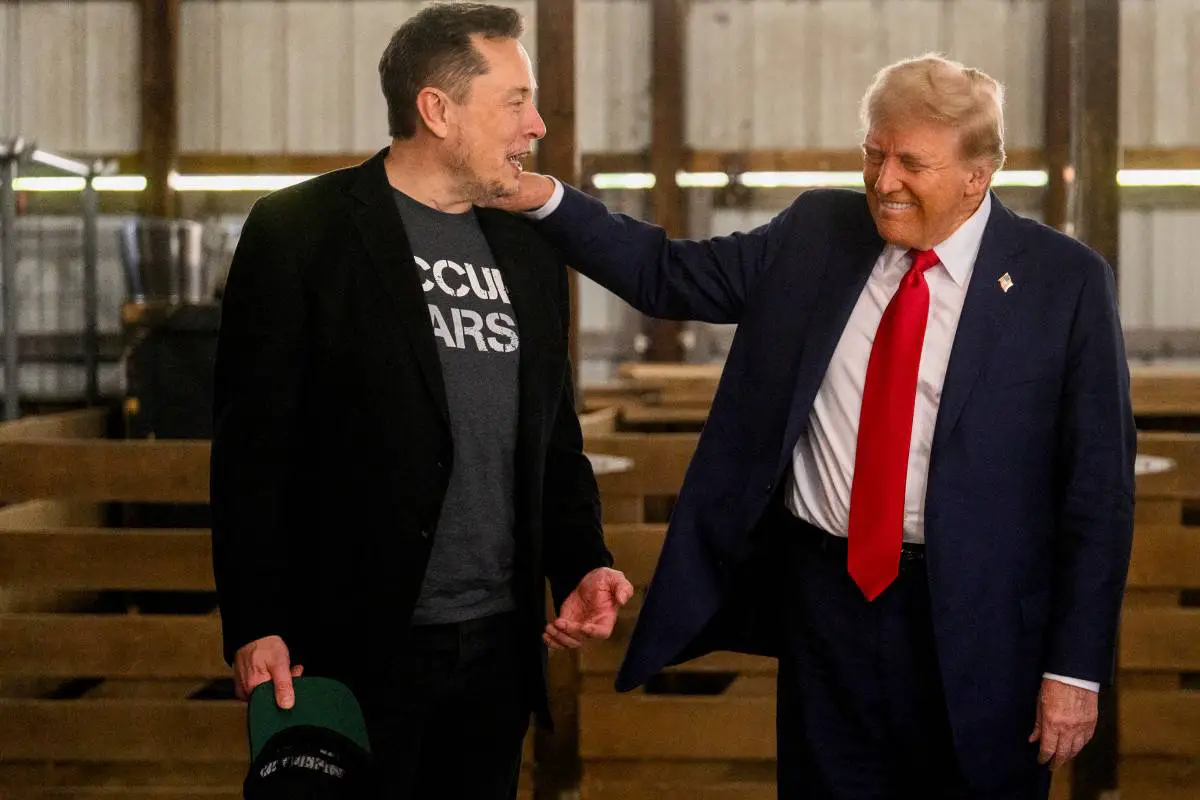
ev policy splits voters in crucial swing state
As the U.S. Presidential election approaches, electric vehicle (EV) policy has surfaced as a divisive topic, especially in significant battleground states such as Michigan. A recent survey from *The Detroit News* and WDIV-TV reveals the stark division among voters regarding the use of federal taxpayer funds to back the EV sector. The poll specifically addressed a $0 million grant given to General Motors (GM) by the U.S. Department of Energy to upgrade its Lansing Grand River Assembly plant for EV manufacturing.
The survey, which included 600 likely voters, showed a nearly equal divide in perspectives. Roughly 46.1% of participants opposed utilizing federal funds for the initiative, while 45.6% were in favor. Additionally, 8.4% were undecided or chose not to respond. This slim margin highlights how contentious the EV discussion has become in Michigan, a state that hosts the Big Three automakers—GM, Ford, and Stellantis.
Richard Czuba, the pollster, pointed out that the division over EVs has intensified due to political campaigns, notably those led by former President Donald Trump. “The discourse regarding electric vehicles has been thoroughly consumed by the political campaigns,” Czuba remarked. “Voters are polarized on EVs because Donald Trump has ensured that division exists. He has driven a wedge in.”
Trump has openly criticized the Biden administration’s environmental policies, particularly the Environmental Protection Agency’s (EPA) regulations aimed at hastening the transition to EVs. He has characterized these measures as an overreach of government power, dubbing them the “Biden EV Mandate.” While Trump has recently moderated his views on EVs, influenced in part by Tesla CEO Elon Musk, his previous statements still resonate with a notable segment of the voting population.
One survey participant, Theresa Riggie, who is inclined to vote for Trump, voiced worries about the economic implications of moving towards EVs. “You shouldn’t feel compelled to purchase an electric vehicle when you can’t afford it,” she remarked. “In that instance, you’re just adding more debt to your finances.”
For Australian investors and enterprises, the political rift in the U.S. regarding EV policy could yield broader consequences. As the global automotive sector pivots towards electrification, the U.S. market remains a critical battleground. Any delays or disruptions in U.S. EV adoption could affect global supply chains, including Australian firms engaged in the production of lithium, nickel, and other essential minerals for EV batteries.
ev market keeps expanding despite political divides
Amid the political disputes surrounding EV policy, the demand for electric vehicles continues to rise consistently. Recent statistics from Cox Automotive and Kelley Blue Book indicate that U.S. automakers sold 346,309 EVs in Q3 2024, reflecting an 11% increase year-on-year. This figure is significant, particularly against a backdrop of political challenges and economic uncertainties affecting the sector. EVs now represent 8.9% of the overall U.S. automotive market, the highest proportion ever recorded.
This growth trend is noteworthy for Australian investors. The U.S. is a vital market for global automakers, and the sustained increase in EV sales demonstrates strong demand for the raw materials that power these vehicles. Australia, as a leading supplier of lithium, nickel, and cobalt—crucial elements in EV batteries—stands to gain from this ongoing demand. Firms such as Pilbara Minerals, IGO, and Allkem, which play significant roles in the lithium supply chain, could attract heightened interest from global automakers seeking to establish long-term supply agreements.
General Motors (GM), which has been central to the Michigan EV policy discussions, experienced a surge in EV sales during Q3, capturing 9.3% of the U.S. market. This positions GM as the second-largest EV seller, following Tesla, which maintains a 48.2% share. GM’s robust performance was fueled by consumer demand for its new EV offerings across its Chevrolet, Cadillac, and GMC lines. For Australian investors, GM’s success could serve as an indicator for the larger industry, especially as the company intensifies its EV production and supply chain investments.
Notably, GM’s expansion in the EV arena has outstripped that of other significant automakers like Hyundai, which secured 8.6% of the U.S. EV market, and Ford, which had a 6.8% share. This competitive environment is essential for Australian enterprises involved in the EV supply chain, as it underscores the growing need for advanced battery technologies and the raw materials necessary for their production. With the U.S. market continuing to grow, Australian companies that can establish themselves as dependable suppliers of these critical minerals are likely to find themselves in a beneficial position.
However, it’s not solely the automakers driving this expansion. The influence of major players like Tesla and Elon Musk is significant. Tesla’s supremacy in the U.S. market, capturing nearly half of all EV sales, highlights the critical roles of innovation and brand loyalty within the industry. For Australian investors, Tesla’s ongoing achievements could indicate further opportunities in renewable energy and battery storage sectors, both intricately linked to the EV market.
Even though political disputes may introduce some short-term uncertainties, the long-term outlook for EVs remains optimistic. As more automakers pledge to electrification and as consumer enthusiasm for cleaner, more efficient vehicles increases, the global EV market is projected to maintain its upward momentum. For Australian businesses and investors, this creates a unique chance to exploit the rising demand for the raw materials and technologies that will energize the next wave of vehicles.

